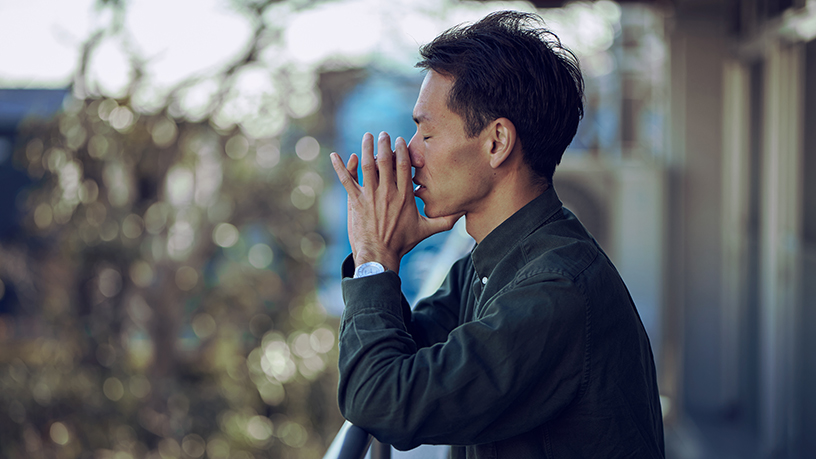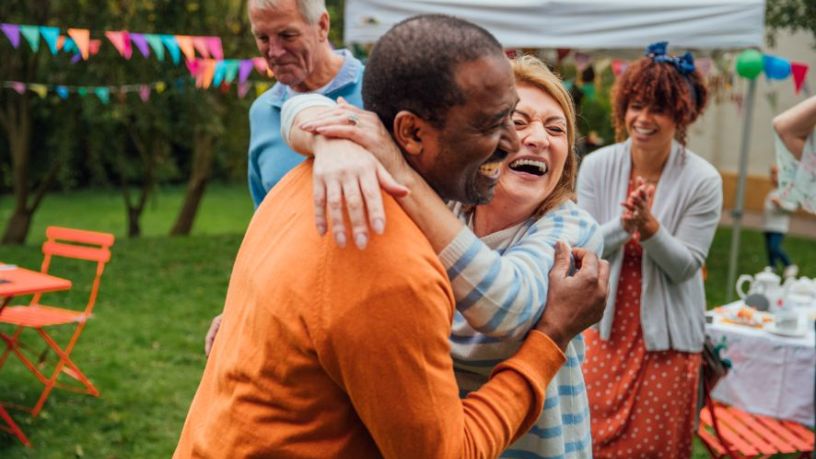On this page
Key takeaways
- Having good mates is about more than good times, it can reduce your risk of both physical and mental health problems.
- Men are less likely than women to reach out for support if they have an emotional problem
- Activities like swimming or joining a run club can help build connections, give you a sense of purpose that promotes good mental health.
New mates; old mates, good mates; best mates.
There’s something undeniably Aussie about having mates. The people who are there in good times and bad and always have your back.
At a time when mental health among Aussie blokes is a growing concern, having good mates has never been more important.
But how do friendships improve your health and how can we support and protect our most valuable connections?
Why are mates so important?
Having good mates is important for overall wellbeing for many reasons says Dr Anna Brooks, Chief Research Officer at Lifeline.
“We often talk about the foundations of wellbeing, such as sleep, movement, good nutrition but also good connection. We know that connection is incredibly important for us as individuals. It’s just one of those fundamental pillars.”
As well as evolving as social beings who need others for survival, Anna explains that having a trusted mate to talk to is important for our mental health.
“Sharing and solving problems together is advantageous because we're able to use collective wisdom to address those challenges. Even if it's not specifically focused on problem-solving, the ability to speak about things that are going on, challenges but also good things, is a fundamental aspect of wellbeing for us as humans.”
For men in particular, mateship provides a support network that traditionally men don’t willingly seek.
“Typically, men are less likely to reach out for support from any of the services available, such as Lifeline. This can be traced back to things like male stereotypes, solving problems on your own and more traditional thinking about what it is to be male. Those things are changing but we are doing a lot of work to make sure that if men reach out for help the experience is a positive one for them.”
Bupa Mindplace psychologist Dr Brett Quayle agrees.
Societal expectations often pressure men to be strong, independent and stoic. This can mean they are less likely to seek out help for fear of appearing ‘weak’.
“Strong male bonds can help reduce stress and improve quality of life.”
Mates aren’t just good for our mental health.
Research shows that being connected to others is essential for good overall health. The absence of healthy relationships and friendships can be as detrimental to health as smoking, substance use and obesity.5
Studies also show that people who have good friends have lower blood pressure and a decreased risk of developing diabetes or having a heart attack or stroke.6
Men’s mental health in Australia: A snapshot
According to the Australian Institute of Family Studies, 25% of Australian men say they would not seek help if they were having an emotional problem.1
1 in 4 said they have no close friends and no one to confide in,2 and 61% reported losing contact with more mates than they would like.2
On average, seven Australian men take their life every day.1
Loneliness and men
Loneliness has been cited as one of the major causes of poor mental health in Australian men. But why are men lonely?
A 2023 Australian study found more than 40% of Australian men feel lonely with factors such as social isolation and the end of a relationship increasing the risk.3
Men are at a greater risk of loneliness than women, potentially due in part to more common behaviours among males such as drug and alcohol use and poor diet.4 “Loneliness is one of those things that can be compounded by increased alcohol and drug use or poor eating,” says Brett.
“A strong network of friends provides a sense of community and belonging, which helps to combat loneliness.”
Free online mental health program
How to protect male mateship
With growing awareness that men need mates to stay well, there are more male-focused services available that directly appeal to the way men communicate and connect.
“We’re seeing more what we call ‘shoulder to shoulder’ activities that aren’t necessarily focused on mental health and suicide prevention, but that promote connection and a sense of purpose,” says Anna.
“Things like a swim or run club or Men’s Shed, with a sporty base, where men are able to engage in activities together but not necessarily eyeballing each other.”
Brett agrees, saying that these activities allow men to communicate in a way that feels comfortable.
“Men often connect through shared hobbies like sports, fishing or working on a project.”
“This ‘side-by-side’ interaction can make it easier for them to open up and talk about their feelings without the pressure of a more formal, face-to-face conversation.”
Male friends often use humour and teasing as a way to build trust and show affection. This can be a protective factor and help to diffuse difficult feelings.
Creating a regular schedule for these social events can also help build new friendships says Brett.
“Routine and intentionality are important in maintaining friendships. Schedule regular check-ins, whether it's a weekly phone call, a monthly lunch or a yearly trip.”
“Shared activities like sports can be a great way to maintain connection. Be open to new people and social opportunities.”
“Don't be afraid to take the initiative to reach out to acquaintances. Remember that most people feel anxious about making new friends, so taking the first step can make a big difference.”
Another important aspect comes from how we talk about mental health in relation to men and boys from a young age, says Anna.
“As parents or carers of boys, making sure that there's open conversations and that it's okay to talk about how you’re travelling is really important. Also creating a vocabulary around feelings and challenges. It's very hard to share if you don't have the words.”
Useful resources
The Men’s Table is a national not-for-profit organisation that runs online and in-person events to help support healthy men, masculinity and communities.
Men’s Shed is a national organisation focused on male mental health that offers practical skills support, cross-generational social connection and an inclusive, safe place to sit and chat.
MensLine Australia is a free, confidential online and telephone counselling service for men. As well as telephone, online and video counselling, the website offers written resources around relationships, mental health and family violence.
Are you in need of urgent support?
We've put together a list of services for free support that's relevant to where you live, and what you're going through.

At Bupa, trust is everything
Our health and wellbeing information is regularly reviewed and maintained by a team of healthcare experts, to ensure its relevancy and accuracy. Everyone's health journey is unique and health outcomes vary from person to person.
This content is not a replacement for personalised and specific medical, healthcare, or other professional advice. If you have concerns about your health, see your doctor or other health professional.
1Australian Institute of family studies. (2020). Mental health of Australian males: depression, suicidality and loneliness.
2Australian men’s health forum. (2024). Mateship and men’s health.
3Healthy Male. (2023). What is loneliness and social isolation?
4National Institute on drug abuse. (2020). Sex differences in substance use.
5American Psychological Society. (2019). The risks of social isolation.
6Very Well Mind. (2024). 6 benefits of friendship and why it's so important to stay close.
You might also like
Mental health support for men in Australia
A guide to helping men recognise symptoms of anxiety and depression, find support, and improve their mental health.
Men's health: 5 things you should know and do
As men age, new health risks emerge. Find out what steps you may need to take to stay healthy and happy.
The importance of staying social as you get older
Having a good social life is fun, but did you know it can also be important for mental health too?
Health checks and screening at every stage of life
It’s important to make sure you get the right health checks throughout your life, from your 20s to your 50s and beyond. Check out our guide to learn more.





